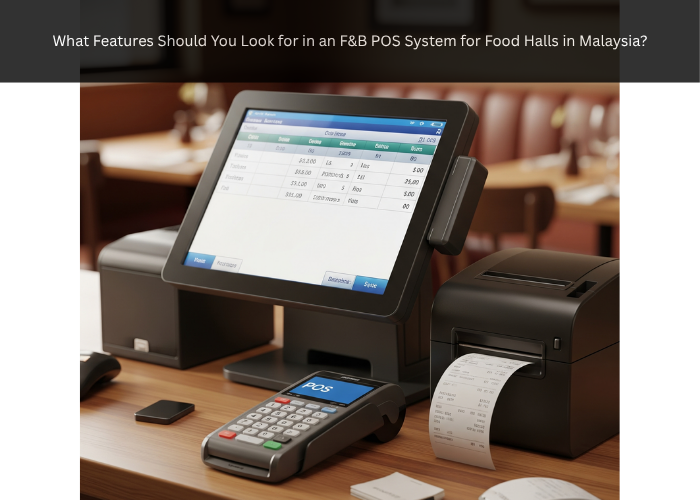The Role of e-Invoice Training Malaysia in Ensuring Regulatory Awareness
Understanding the evolving landscape of taxation and compliance is essential for any business in Malaysia. The government’s push toward digitization means that tax reporting and invoice management are being transformed. Attending e-Invoice training Malaysia sessions helps business owners and finance professionals stay updated on the latest policies and implementation timelines. These programs often feature speakers from regulatory bodies, software providers, and accounting experts who interpret the latest LHDN guidelines into actionable knowledge.
For businesses operating without formal finance departments, this kind of training becomes especially useful. It ensures that managers and staff are not caught off guard by compliance changes. Missing out on regulatory updates can result in penalties or the costly need for rapid system overhauls. Through proper training, companies can implement processes that meet requirements while continuing day-to-day operations with minimal disruption.
Why e-Invoice Training Malaysia Builds Confidence Among Business Owners
Many SMEs and microenterprises operate with lean teams that juggle multiple responsibilities. Implementing a new invoicing system might seem like an added burden. However, e-Invoice training Malaysia programs are designed to demystify this process. They offer step-by-step walkthroughs, from how to register for government-compliant software to understanding invoice formats and submission timelines.
More importantly, these training programs give business owners the confidence that they are on the right path. Compliance becomes less of a source of anxiety and more of a structured task within the business plan. With access to actual use cases, hands-on demos, and post-training support, attendees walk away with not just knowledge, but clarity. This mental ease is a significant benefit, especially for entrepreneurs who wear multiple hats.
Practical Skills You Can Gain from e-Invoice Training Malaysia
A key advantage of structured training is acquiring the practical skills needed for real-world application. Many e-Invoice training Malaysia programs offer interactive modules where participants learn to create, manage, and troubleshoot digital invoices using commonly approved software platforms. This hands-on experience proves to be more effective than passive reading or online research.
Participants also learn how to customize invoice templates, incorporate digital signatures, and apply tax codes correctly. Beyond these skills, training often includes modules on integration—how e-invoicing systems link with existing accounting software and ERP systems. This knowledge streamlines implementation and minimizes redundancy. For businesses planning to scale or serve international markets, these skills become indispensable.
How e-Invoice Training Malaysia Prepares You for Government Mandates
Malaysia’s Inland Revenue Board (LHDN) is gradually rolling out mandatory e-invoicing based on company turnover and business category. Eventually, all businesses will be required to comply. e-Invoice training Malaysia offers a structured approach to readiness, helping companies of all sizes prepare for each implementation phase well in advance.
These sessions often provide a roadmap tailored to different business sizes and industries. Rather than reacting to mandates last-minute, trained companies can implement phased strategies. This reduces the need for emergency tech purchases, rushed employee training, or last-minute compliance checks. Businesses that train early can also gain a competitive advantage by becoming early adopters, winning the trust of clients and suppliers through their professionalism and preparedness.
Financial Accuracy and Efficiency from e-Invoice Training Malaysia
One of the often-overlooked benefits of e-invoice adoption is the enhancement of financial reporting and internal controls. Training helps ensure that every stakeholder understands how automation works, how to handle exceptions, and how to correct errors in a legally compliant manner. With this level of clarity, businesses can reduce the likelihood of duplicate entries, tax miscalculations, or delayed submissions.
e-Invoice training Malaysia also introduces attendees to the best practices in audit preparation, monthly closings, and tax filing. This leads to greater efficiency in financial reporting, faster processing times, and fewer disputes with clients. By strengthening your internal control framework, the risk of fraud or unintentional misreporting is significantly reduced.
The Link Between e-Invoice Training Malaysia and Digital Transformation
Embracing e-invoicing isn’t just about compliance—it’s a step toward full digital transformation. Many Malaysian companies still rely on manual processes and paper records. Transitioning to digital invoicing means updating your workflow, adopting new tools, and training staff to use them effectively. e-Invoice training Malaysia becomes a catalyst in this transformation.
During training, businesses often discover related opportunities for automation in areas like payroll, procurement, and inventory management. This ripple effect can trigger a broader digital strategy. With better data analytics, cloud storage, and real-time reporting, decision-making becomes faster and more informed. Companies that view training as an investment rather than a cost tend to see measurable operational improvements over time.
e-Invoice Training Malaysia as a Networking Opportunity
Training sessions are not only educational—they’re also an excellent way to build connections. Attending e-Invoice training Malaysia allows participants to meet peers from similar industries, software providers, consultants, and regulatory advisors. These connections can prove valuable when navigating challenges or seeking recommendations.
In some cases, partnerships are formed during training events, especially between smaller businesses and service providers. These relationships help streamline implementation or offer discounted solutions. The shared learning environment also creates a support system where companies can exchange insights and keep each other updated as compliance guidelines evolve.
Real-World Success Stories Sparked by e-Invoice Training Malaysia
Across Malaysia, numerous businesses have already seen positive results after attending formal training. For instance, a mid-sized logistics company in Selangor used the training to fully automate its invoicing process. As a result, they reduced processing time from three days to a few hours, leading to faster client payments and improved cash flow.
Another example comes from a small graphic design agency in Penang. After attending an e-Invoice training Malaysia session, they adopted a digital platform that integrated directly with their payment gateway. This eliminated the manual step of reconciling bank transfers with invoices. Within months, the agency reported fewer client disputes and more predictable revenue cycles.
Final Thoughts: Training as a Strategic Business Move
Rather than viewing e-invoice compliance as a technical hurdle, businesses should treat it as a long-term investment in operational excellence. With the right training, companies can meet regulatory requirements while improving their internal systems. They gain clarity, efficiency, and the confidence to grow their operations sustainably.
For those who want to ensure a smooth and compliant transition, attending an e-Invoice training Malaysia session is a practical and forward-thinking decision. It sets the stage for digital readiness and positions your business to thrive in Malaysia’s increasingly digital economy.










